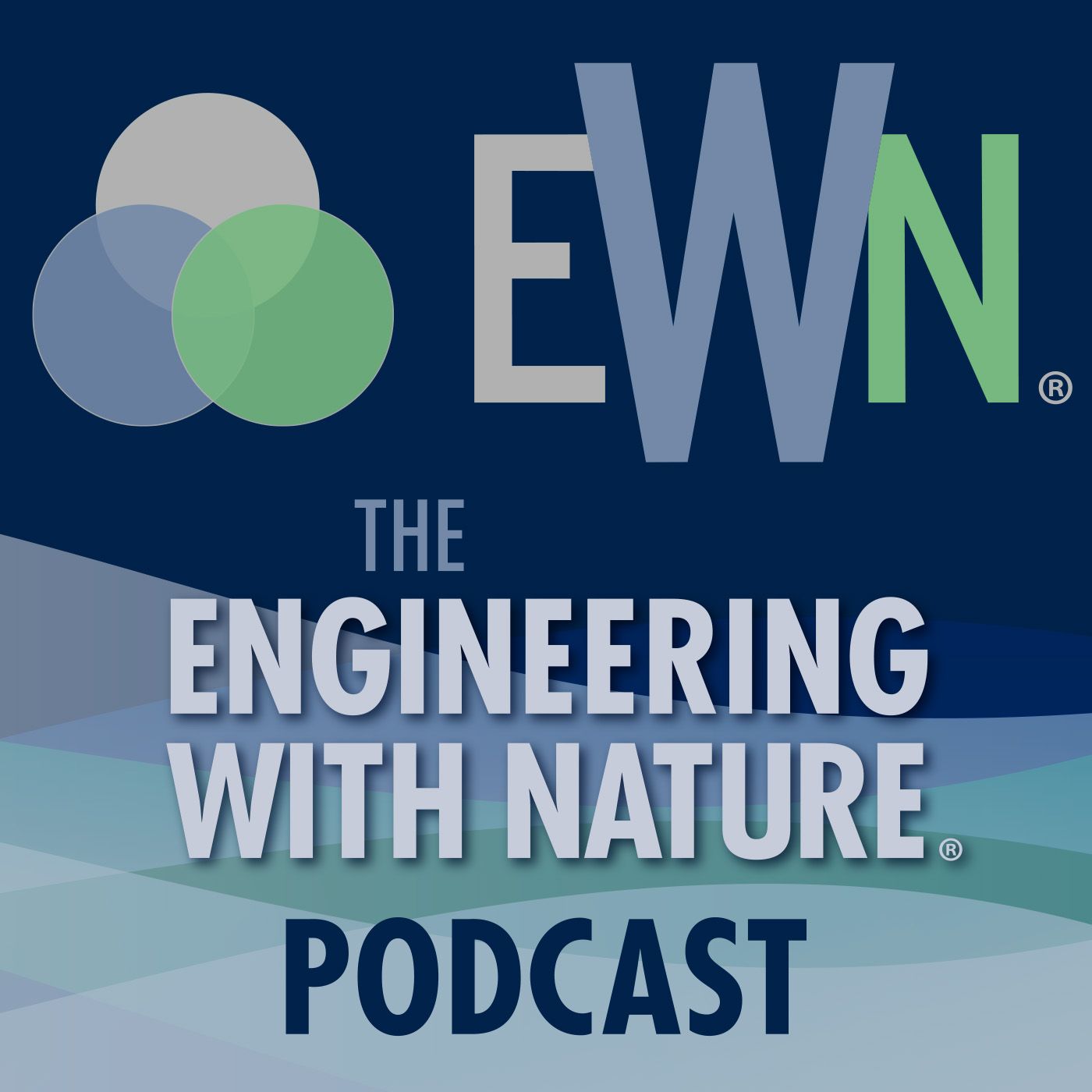Regenerative Land Management—Nature Already Has It Dialed In
Description
Welcome to a new season of the EWN Podcast! Our guest has a bold vision for natural, holistic land management. He's not just thinking about how water harvesting and land management can complement or even replace traditional water resources engineering, he's putting it into practice. In Season 7, Episode 1, host Sarah Thorne is joined by cohost Jeff King, National Lead of the Engineering With Nature Program, and Ricardo Aguirre, Director of Land Management and Water Security for WEST Consultants (WEST) in Arizona and Executive Director of the Drylands Alliance for Addressing Water Needs (DAAWN).
Ricardo is an engineer, rancher, consultant, and an accredited holistic management professional and educator. He has 25 years of experience working on hydrology, stormwater management, flood control, and groundwater recharge. Ricardo grew up on a cattle ranch and cotton farm in southern Arizona. The farm failed, and his family urged him to get away from agriculture, but his mother sensed that water was going to be the future in the Southwest and recommended he become a water attorney. Instead, he chose civil engineering with a focus on water resources. Following graduation from the University of Arizona, he worked at the US Army Corps of Engineers (USACE) in the Construction Engineering Research Laboratory (CERL) while completing a master’s degree at the University of Illinois.
After working in land development, Ricardo’s career brought him back to his family’s lands but with new perspectives on land management and water use. He started his own firm, Holistic Engineering and Land Management, then joined WEST to pursue his vision for regenerative land management. Regenerative land management, Ricardo explains, “is understanding nature’s patterns and working with nature to maintain landforms, specifically in this case, grasslands that do the yeoman’s work in the carbon and water cycles.” One of the core principles in this system is the need for megafauna, large livestock such as sheep and cattle. Ricardo says that, “in temperate environments, megafauna prevent forests from moving in on grasslands; and in arid environments, megafauna prevent grasslands from becoming a desert.”
To better understand these relationships, Ricardo and WEST have created a demonstration site on land purchased by WEST that used to be part of Ricardo’s family’s ranch. They are conducting a project to compare the impact of conventional grazing—a small number of animals in a very large area for long periods of time (months to years)—to high-density grazing—a larger number of animals in a very small area for very short periods of time (hours to days). As Ricardo explains, this high-density grazing concentrates and evenly distributes the beneficial animal wastes and the trampling of plants back into the soil to feed beneficial soil organisms. The animals then don’t come back to this land until the space is ready to be grazed again.
Also, in alignment with the principles of EWN, Ricardo is committed to advancing the practice of working with nature through training. He is an accredited professional with the Savory Institute and trains land managers in holistic management: holistic financial planning, holistic ecological monitoring, holistic land planning, and holistic planned grazing. In 2024, Ricardo will offer training courses through DAAWN, the nonprofit Savory Hub, one of a network of local learning centers affiliated with the Savory Institute that offer services to support local farming, ranching, or pastoralist communities, tailored to their specific needs.
For more information and resource links, please visit the EWN Podcast page on the EWN website at https://www.engineeringwithnature.org/
• Jeff King...
More Episodes
When we think about the use of nature-based features to increase coastal resilience, the focus is mostly on coasts along the ocean. But what about the Great Lakes? Over the past 10 years, the Great Lakes have experienced both historic high and low lake levels. These extreme fluctuations cause...
Published 11/26/24
Published 11/26/24
In Season 8, Episode 3, host Sarah Thorne and Amanda Tritinger, Deputy National Lead of the Engineering With Nature (EWN) Program, US Army Corps of Engineers (USACE), are joined by Brian Davis, Associate Professor of Landscape Architecture at the University of Virginia (UVA), and Cathy Johnson,...
Published 10/22/24


